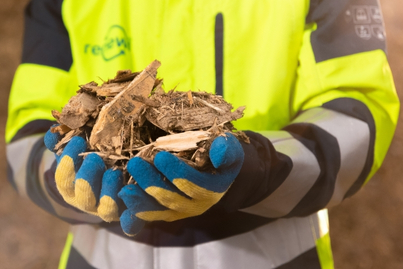Sustainability
Advancing circularity together

How we contribute to a more sustainable, cleaner world
Our mission is to protect the world by giving new life to used materials. By turning waste into value, we provide benefits for our customers, employees, communities, and the planet. Our efforts align with six of the UN Sustainable Development Goals.
Sustainability: for our customers and ourselves
We approach sustainability in two ways. On the one hand, we help our customers achieve their sustainability goals by providing solutions that give new life to their waste, thereby avoiding CO₂ emissions in the supply chain. We also support them in complying with applicable legislation, such as the CSRD and Vlarema requirements. On the other hand, we focus on our own sustainability efforts. We actively reduce our own CO₂ emissions and are committed to the wellbeing of people and communities. All of this is driven by innovation, which enables us to make progress time and time again.
Good health and wellbeingKeeping employees safe and well is a key objective, and we have the same responsibility to local communities. |
Clean water
|
Affordable and clean energyWe lower our carbon footprint by using renewable energy and we sell green energy produced on site. |
Sustainable cities
|
Responsible consumption
|
Climate actionWe take action to protect the climate by carbon avoidance and recycling waste that would otherwise be sent to incineration or landfill. |
Our sustainability strategy focuses on
Recognition of our positive impact
Our pursuit of innovation and sustainability is often recognised and rewarded. Moreover, we make use of external assessments and standards to measure and improve our ESG performance. This allows us to benchmark ourselves against best practices and meet stakeholder expectations.